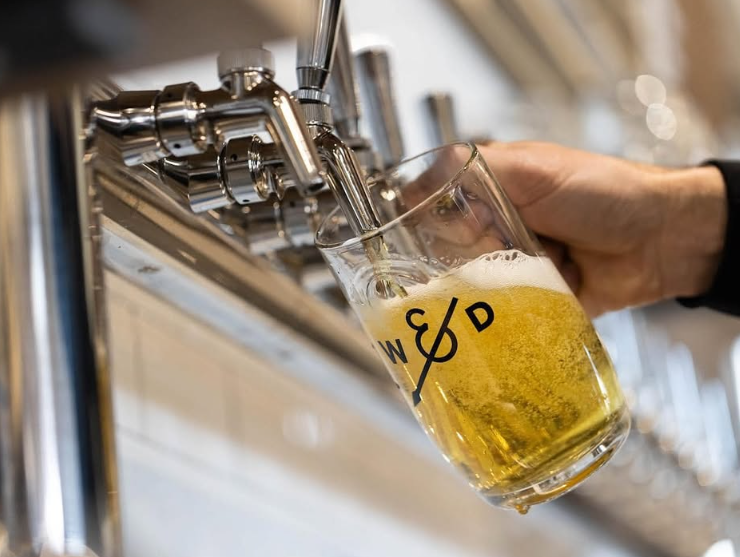
Westbound & Down

Audio By Carbonatix
Westbound & Down is on a roll. The growing brewery raised over $1.2 million in just fifty days this spring, and in September, it announced plans to add a flagship Denver-area location in Wheat Ridge. It’s now almost $800,000 into a second round of investment, and it took home a Brewery of the Year award at October’s Great American Beer Festival.
With so many headlines about the slowing craft beer industry, consolidation, and brewery closures, how has Westbound managed to buck the trend?
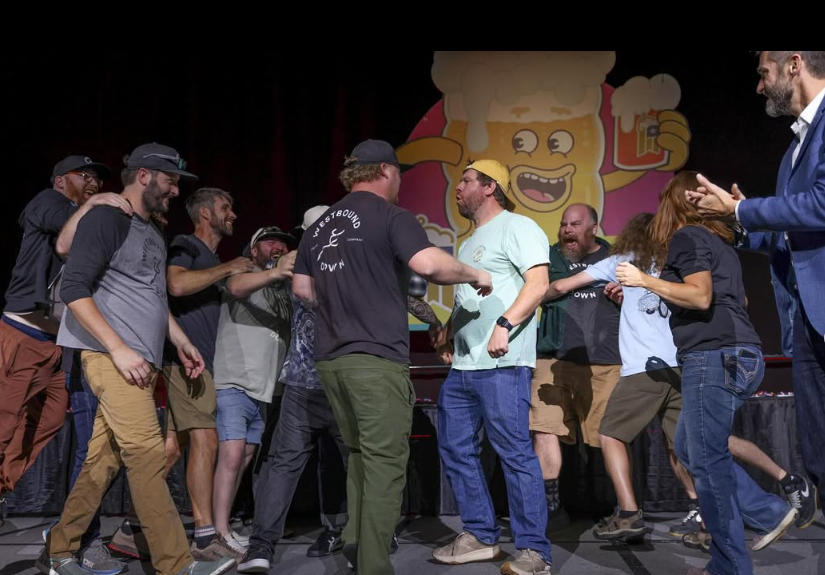
Westbound & Down
The Keys to Success
“We’re making the best beer we’ve ever made now,” says Jake Gardner, the brewery’s CEO and director of brewing operations. Plus, “some of the best brewers in the greater Denver area over the last decade are on this team,” he adds, citing the attention to detail that the team has, as well as its competitiveness and pride as keys to success.
Will you step up to support Westword this year?
We’re aiming to raise $50,000 by December 31, so we can continue covering what matters most to this community. If Westword matters to you, please take action and contribute today, so when news happens, our reporters can be there.
The team sits down every Monday to taste different beers at different ages, picking each one apart and finding ways to improve future batches.
High-quality equipment and ingredients are also key. The brewery features a counter-pressure canning line from Littleton’s Codi Manufacturing, a piece of equipment that Gardner describes as “probably the best canning line on the market.” In fact, its medal-winning Italian Pilsner at the 2025 Great American Beer Festival was packaged in early August. “Hats off to Cari [Schnepp] and the packaging team, because that beer had 25 days more age on it than most beers it competed against, and it still beat them all,” he says.
As Westbound grows, its ingredients are improving in quality, too. Many growing breweries leverage scale to find better prices on ingredients. Gardner is most excited about using a larger Westbound & Down to get access to rare and custom ingredients. “We see value in our ingredients separating us from the pack,” he notes. “I want the best ingredients possible, and then I’ll negotiate the price. In that order.”
An example of Westbound using that scale to secure better ingredients will make its way into beers next year. “We’re getting a custom malt made for us from Rahr Malting,” says Gardner, noting that this is not something a malting company would do for a smaller-sized customer.
Westbound sees a great deal of success in its hoppy beers in particular, both in market sales and at prestigious competitions like the Great American Beer Festival, the World Beer Cup and the Colorado Cup.
Creative Director Eric Schmidt recalls visiting the Pacific Northwest to select various hop lots for Westbound’s beers for the first time several years ago. “We utilized all those hops in Westbound Select, which won gold for West Coast IPA,” says Schmidt. “That’s the first year where we got premium ingredients that we selected for the flavor profile that we’re trying to create,” he adds.
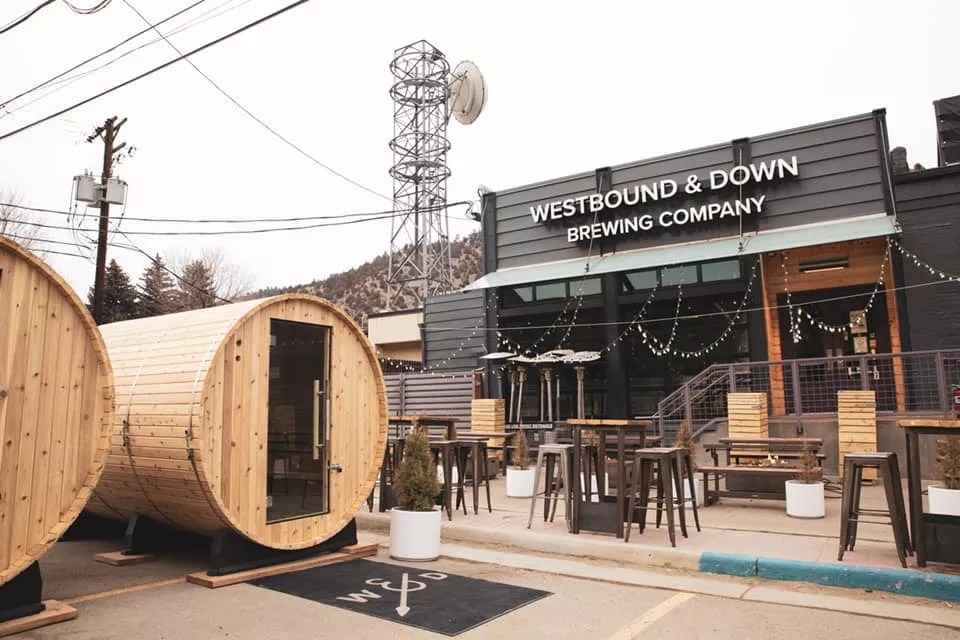
Westbound & Down Brewing
Crowdfunding
Westbound aims to continue controlling its own destiny while growing the company and enhancing its beer. To achieve that, the team launched its first crowdfunding campaign in March. Schmidt was initially hesitant about the idea, but he came around after realizing how much freedom it would give the company. “All of a sudden, we control our destiny, whereas a big chunk of money typically comes with expectations and it kind of limits your creative direction,” he says.
Gardner adds that the early response from his peers was not particularly welcoming. “We got a lot of flak for it in the industry,” he recalls. “Now, some time has passed, and instead, most of the industry emails I get are asking if I can walk them through how we did it,” he says.
It’s an idea inspired by Holidaily’s successful crowdfunding round, which closed in January, and Gardner is happy to contribute information and explore new avenues for craft brewers. “I think anyone with serious upside in their business plan and an ability to connect with people who are rooting for your cause would be a good fit for [crowdfunding],” he says.
Westbound wasn’t originally planning to do a second fundraiser, but the success of the first one, combined with a major opportunity to buy its future flagship Denver location, made a second raise a logical choice for the team.
Gardner says that over 350 people invested in the first round, and most were Colorado residents. He says that the team constantly meets these fans, who are regulars at the Lafayette taproom or occasional visitors at the Idaho Springs location. “People have vivid stories,” says Gardner. “I didn’t predict how awesome it would be to engage with some of our most loyal fans.”
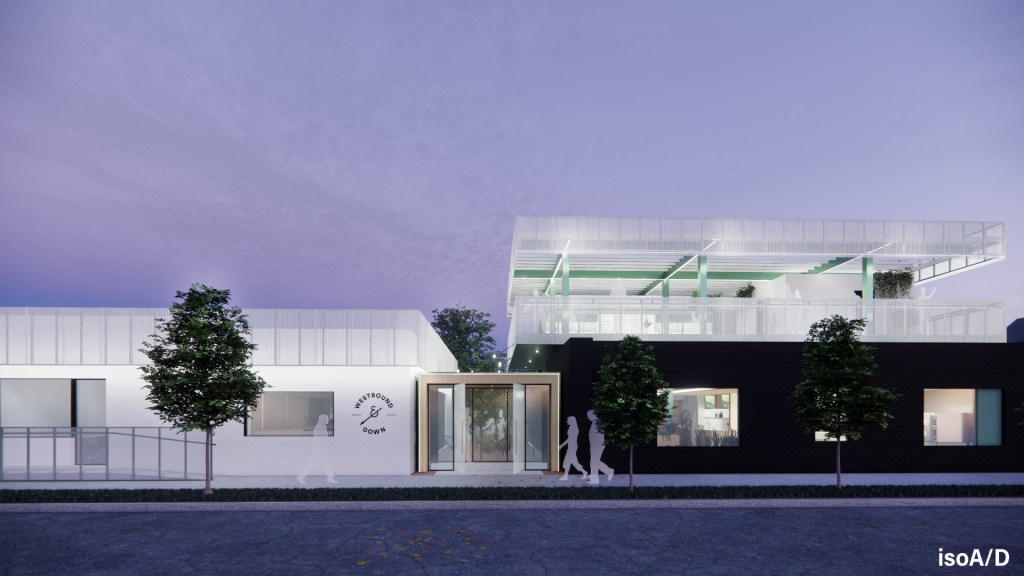
Westbound & Down Brewing.
New Wheat Ridge Flagship Location
The second fundraiser opened on September 9, after Westbound was given the opportunity to purchase its new Denver-area property. The location that will house its flagship restaurant and taproom is at 5540 West 29th Street in Wheat Ridge, just a few blocks from the Denver city limits.
That part of northwest Denver is quickly becoming one of the best areas for craft beer in the country. Cerebral Brewing opened up a location with Outside Pizza earlier this year, joining stalwarts Hogshead Brewing and Joyride Brewing, as well as over a dozen other breweries within just a couple of miles. Gardner says that area is one that does very well for Westbound’s sales already, and while he might’ve been hesitant opening near his former employer (Hogshead) and his good friends at Joyride, he ultimately has to do what is best for Westbound as a company.
The new location consists of two buildings that join together to form a courtyard in between them. There are roughly 4,800 square feet throughout, plus a rooftop patio. Gardner says that the rooftop patio, as well as the courtyard, will have a more casual vibe where people can hang out and have drinks.
One person who is especially looking forward to the Denver location is Westbound’s director of culinary & brewpub operations, chef Casey Taylor. Taylor is a veteran of Denver’s restaurant scene, and he’s excited for what’s to come at Westbound’s new location. “We’ve been able to accomplish a lot, and I love the challenge of Lafayette’s small footprint,” he says. “But I’m extremely excited to have a larger kitchen and some more toys to play with,” including a wood-fire assisted charbroiler, a fan smoker and a fryer, among other things.

Jonathan Shikes
His plan is to continue to focus on the pizza, sandwiches, salads and shareable vegetable dishes that currently make up the Lafayette menu, while adding fish options like Colorado bass and salmon, mussels and even different meat dishes like Korean-style short ribs.
At the core of every dish, Taylor thinks about how well it will go with a beer. “I’m just trying to think about elevating brew pub food and having some classics with a bit of a modern spin on them,” he says.
Pizza will not be an afterthought. Taylor is excited to compete with some of Denver’s best pizzerias. He starts his dough with a pre-fermentation, called a poolish, which ultimately results in a sixty-hour process. He uses Westbound’s beers in that poolish – usually Mexican lager.
There is an expectation that the new location will open in late 2026 or early 2027, so Taylor has some time to plan the dishes. In the meantime, he’s added a beef dip and a spicy Cuban sandwich to the Lafayette menu. An eggplant parmesan sandwich has also been popular recently.
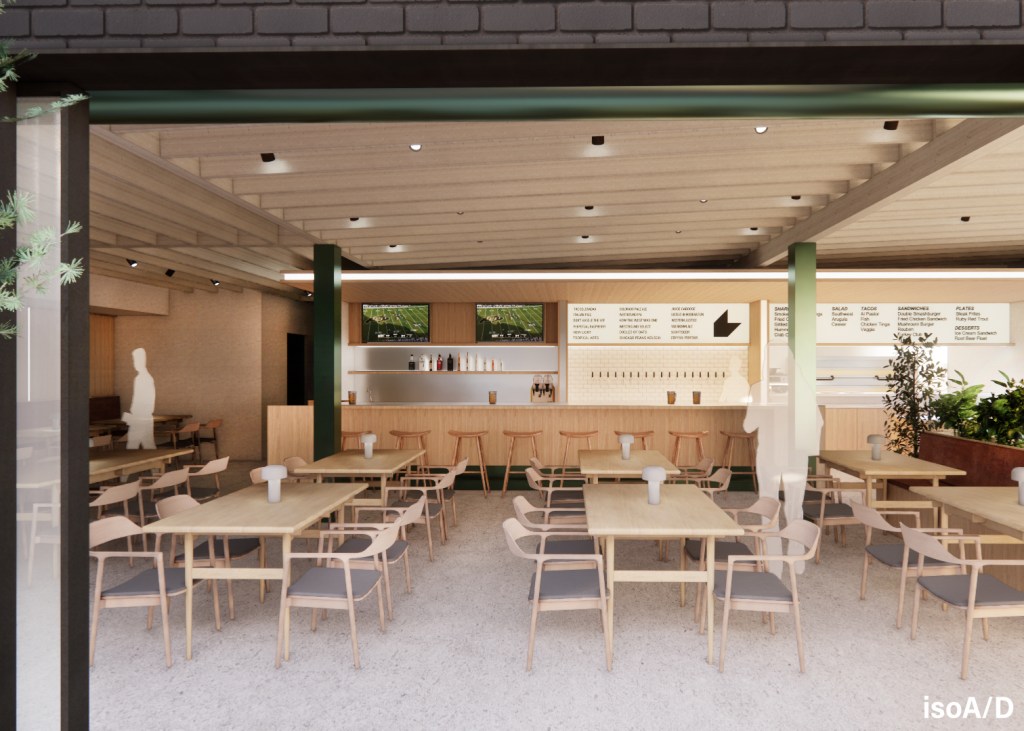
Westbound & Down Brewing.
Future Growth
Westbound plans to continue growing in the Wheat Ridge location. Gardner says that the brewery produced about 5,000 barrels of beer last year; that number was set to rise to about 7,500 in 2025, but the brewery has actually been on pace to do over 8,000 barrels since summer, when some additional brewhouse construction was completed at Lafayette. With continued demand, Gardner expects to produce well over 9,000 barrels of beer in 2026.
He says that the current craft beer landscape has gotten “weirder” and “not happier.” “I don’t think anyone is in love with this version of consolidation, and all the old school brands selling,” he notes.
“We’re trying to bring back pride and glory to Colorado craft beer. We have a customer base that loves great beer. You see them at Cannonball Creek, Bierstadt, Comrade. These are average Coloradans and they know an incredible amount about craft beer,” he concludes. “We’re very fortunate to have a populace that really appreciates quality and can differentiate.”